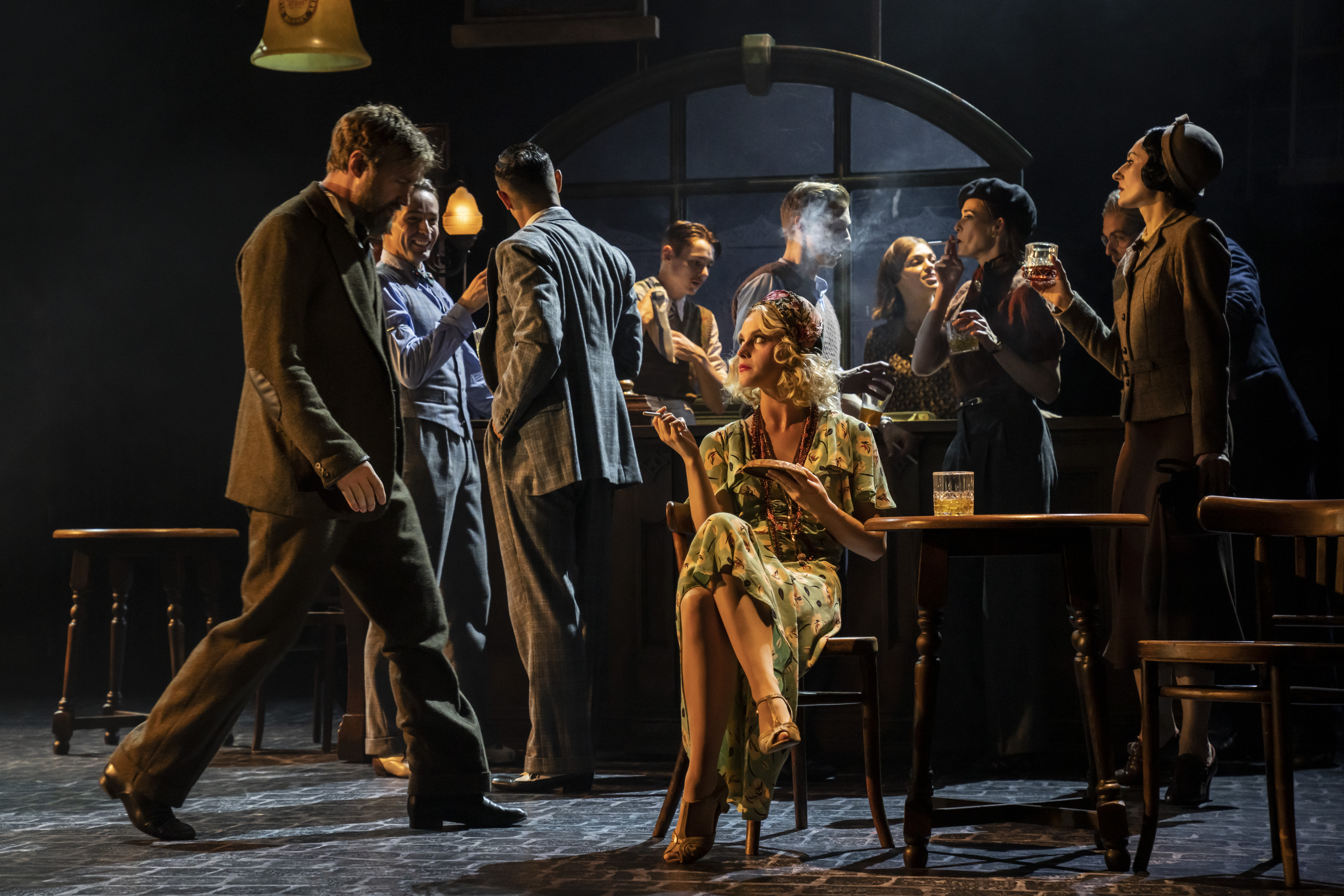
Matthew Bourne is Britain’s most accessible, family-friendly choreographer. But it’s in the dark and seamy corners of his imagination that he comes alive. The nightmares of abandonment that menace his Swan Lake and Nutcracker, or the Sixties power games of Play Without Words. His latest, The Midnight Bell, is a multi-stranded dance drama inspired by the novels of the somewhat neglected English writer Patrick Hamilton.
This 1930s London sits under smoggy skies. It’s gloriously atmospheric, with grimy windows, crude red neon and cigarettes flaring through the dark. Everyone is searching for a smooch, usually unhappily. And everyone drinks, OMG how they drink – to endure, or forget, or summon the courage for a flirt. Tumblers and tooth mugs are fogged with whisky, and everyone wobbles on the border of blotto, greeting each day with a bleary stumble round hangover square.
The Midnight Bell is their Soho local – you sense the sticky floor and gin-sodden woodwork. This is no sleek cocktail set – instead, glum loners fritter away the hours. Bourne teases four misbegotten relationships from Hamilton’s tales (including The Slaves of Solitude and Hangover Square) and adds one of his own invention. Each is built on deception and set for disappointment.

Bourne’s veteran dancers are on superb form as lovelorn barflies. Michela Meazza, with her endless tango legs, plays against type as Miss Roach, tight-lipped and tweedy, who gets fleeced by a bounder (Glenn Graham sneaks a pilfered fiver down past his sock suspenders). Liam Mower’s elegant chorus boy has a covert gay romance, all wandering hands and wary snogs on a park bench.Most searing of all, Richard Winsor is dishevelled and tormented George Bone – kept hanging on by Daisy May Kemp’s waspish siren, hollowed out by her scorn and by mental illness.
Beyond the pub, Bourne takes us under the glitterball to a palais de danse and shows us the particular hell of being stood up at a Lyons Corner House. He also reveals forlorn bedrooms where couples clinch and flinch apart. Through it all, Terry Davies’ music is plush and tense as a movie score, cut with torch songs in vintage recording, to which characters lip-synch in helpless confession.
Not every story develops as expected, and the dance is deft and busy, squirming with detail – a coat shrugged off a shoulder, one hand reaching sneakily for another. His characters may be falling apart, but Bourne’s storytelling is secure and richly captivating.







